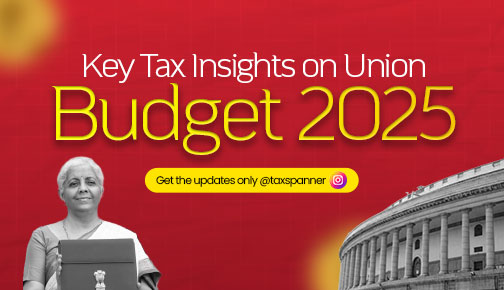Tax benefits on education loan
Getting an education is an investment that continues to pay off for the rest of your life. However, as demand grows, so does the price of providing quality education. If that's the case, it can be challenging to find money for school. This is where the concept of an education loan comes in.
The Income Tax Department offers a number of tax deductions on student loan interest to lessen your financial burden.
If you have taken an educational loan, you are eligible for tax advantages according to both Section 80E and 80C of the Income Tax Act. However, these benefits only apply if you adhere to the old tax regime. The new tax regime has higher income tax brackets and has eliminated many deductions and exemptions previously available. As a result, it is not possible to avail of these benefits under the new tax regime.
Eligibility for a tax deduction on education loan
Only individuals can avail of the deduction for the interest paid on an education loan. HUFs (Hindu Undivided Families) or any other type of taxpayers are not eligible to claim this deduction.
The loan must be used to pay for the higher education of the borrower, their spouse, their children, or a student over whom they have legal guardianship.
Loans taken by parents for their children's higher education can be deducted from the parent's taxes.
If your parents split the EMI payments, they can claim the deduction of the amount they spent on interest while you can claim the remaining deduction amount.
Section 80E says you can only get a tax deduction if you borrow money from a bank, other financial institution, or an approved charitable organization. This exemption does not apply to loans for higher education taken from friends or family.
Objective of education loan
To qualify for the education loan deduction, the loan must be taken out to pursue higher education. The location of higher education, whether inside or outside of India, has no impact on the eligibility for this deduction.
Higher education includes all subjects of study undertaken after passing the senior secondary school exam or an equivalent examination. This covers both regular and vocational courses.
Tax deduction under Section 80E
The EMI paid within the financial year includes the complete interest component, which is eligible for the deduction. There is no specific upper limit on this deduction.
However, a certificate from your bank must be obtained. This certificate should clearly separate the principal and interest components of your annual payments for student loans.
There is no tax benefit for repaying the principal amount; however, the interest paid may be deducted.
Tax deduction under Section 80C
You can easily complete the following steps to claim deductions under Section 80C:
Include the amount of interest you paid on the student loan for the financial year in your income tax return (ITR). The certificate that your bank provides, which displays the total interest paid on the student loan, contains this information.
Salaried people who have taken out student loans should promptly inform their company's accounts department so that the tax deducted at source (TDS) can be adjusted. While submitting your ITR, you can ask for a refund if the TDS deduction still needs to be adjusted.
Tax Deduction period
The deduction for interest on a loan commences from the year in which you begin repaying the loan. This deduction can be taken for up to eight years, from the first year of loan repayment or until the interest is paid off in full, whichever comes earlier.
For example, if you pay off the total loan amount within five years, you won't be able to claim the deduction from your taxes for the full of 8 years.
It's important to remember that you can only claim a tax deduction for interest paid on a loan that lasts up to eight years. To get the most out of the deduction, paying off the educational loan in full within eight years is best.
Education Loan benefits
- There are no penalties for making an early student loan repayment.
- In fact, if your bank discovers that you are making loan payments on time, your interest rates will drop.
- These loans are typically quite flexible, allowing the borrower to pay them back over time as long as they make timely installments, no matter how small the installment is. If you wait longer to pay the amount, the interest due will increase.
- A guarantor is required for a student loan and not assets.
- Depending on the bank's discretion, the loan often includes travel, lodging, and tuition coverage.
- As long as they are obtained from a financial institution as specified by the bank you are borrowing from, education loans can be obtained for diplomas and other professional courses.
Explore TaxSpanner's wide range of calculators for your tax planning and calculations!
View Tools & Calculators



